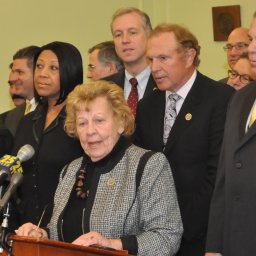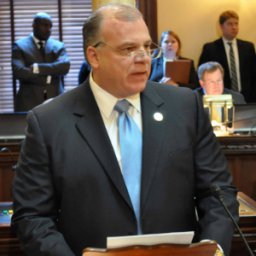Would Prevent Towns From Moving Certain Spending Items Out Of The Cap
TRENTON – Legislation sponsored by Senate President Steve Sweeney that would help insulate property taxpayers from efforts by local officials to make end runs around the state’s 2 percent cap cleared the Senate State Government, Wagering, Tourism & Historic Preservation Committee today.
“For some services, the term ‘user fee’ is just a clever way to avoid actually calling it what it is: property tax. Property taxes are high enough without local officials trying to come up with clever and new ways to raise them even more. The cap was put in place because New Jerseyans have had it with ever increasing property taxes. It shouldn’t be seen as simply something to get around,” said Sweeney (D-Gloucester, Cumberland, Salem).
The bill, S-1914, would prevent local officials from moving spending items traditionally covered by the property tax levy, like trash collection, off the property tax bill into a “user fee” to get around the state’s 2 percent property tax cap. Instead, services shifted from a property tax base to a “user fee” base would continue to be counted as part of the cap.
Since the enactment of the 2 percent cap in 2010, seventeen New Jersey municipalities have gone to referendum asking voters to override the cap, with several of those attempts tied to the creation of a new “user fees” to fund services that would be taken off the property tax bill if the vote failed, but would continue to be publicly provided as they were before. Current law isn’t clear about prohibiting this practice. The Senate President’s bill would make it clear that any services that get shifted out of the property tax base to a user fee are still subject to the 2 percent cap.
“Hard working families in this state need a break. They are already, on average, paying 20 percent more in property taxes under this administration. They don’t need their property taxes increased in other ways. When we eliminate these kinds of loopholes and implement our proposed 10 percent property tax cut, we are going to start to see real relief for New Jersey’s middle class,” added Sweeney.
The bill now heads to the Senate Budget and Appropriations Committee.



